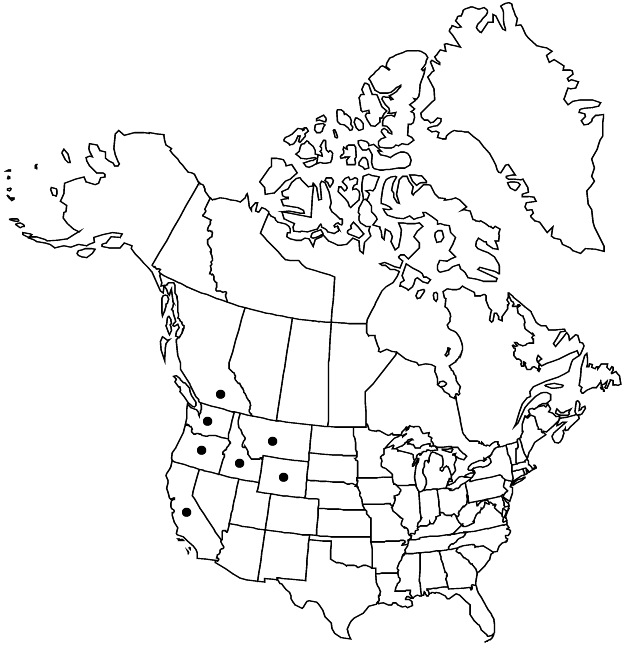Difference between revisions of "Polygonum spergulariiforme"
Bull. Torrey Bot. Club 19: 366. 1892.
FNA>Volume Importer |
imported>Volume Importer |
||
| (3 intermediate revisions by 2 users not shown) | |||
| Line 8: | Line 8: | ||
}} | }} | ||
|common_names=Spurry or fall knotweed | |common_names=Spurry or fall knotweed | ||
| + | |special_status={{Treatment/ID/Special_status | ||
| + | |code=E | ||
| + | |label=Endemic | ||
| + | }} | ||
|basionyms= | |basionyms= | ||
|synonyms={{Treatment/ID/Synonym | |synonyms={{Treatment/ID/Synonym | ||
|name=Polygonum douglasii subsp. spergulariiforme | |name=Polygonum douglasii subsp. spergulariiforme | ||
|authority=(Meisner ex Small) J. C. Hickman | |authority=(Meisner ex Small) J. C. Hickman | ||
| + | |rank=subspecies | ||
}} {{Treatment/ID/Synonym | }} {{Treatment/ID/Synonym | ||
|name=Polygonum emaciatum | |name=Polygonum emaciatum | ||
|authority=A. Nelson | |authority=A. Nelson | ||
| + | |rank=species | ||
}} | }} | ||
|hierarchy=Polygonaceae;Polygonaceae subfam. Polygonoideae;Polygonum;Polygonum sect. Duravia;Polygonum spergulariiforme | |hierarchy=Polygonaceae;Polygonaceae subfam. Polygonoideae;Polygonum;Polygonum sect. Duravia;Polygonum spergulariiforme | ||
| Line 38: | Line 44: | ||
-->{{#Taxon: | -->{{#Taxon: | ||
name=Polygonum spergulariiforme | name=Polygonum spergulariiforme | ||
| − | |||
|authority=Meisner ex Small | |authority=Meisner ex Small | ||
|rank=species | |rank=species | ||
| Line 52: | Line 57: | ||
|publication title=Bull. Torrey Bot. Club | |publication title=Bull. Torrey Bot. Club | ||
|publication year=1892 | |publication year=1892 | ||
| − | |special status= | + | |special status=Endemic |
| − | |source xml=https:// | + | |source xml=https://bitbucket.org/aafc-mbb/fna-data-curation/src/2e0870ddd59836b60bcf96646a41e87ea5a5943a/coarse_grained_fna_xml/V5/V5_1168.xml |
|subfamily=Polygonaceae subfam. Polygonoideae | |subfamily=Polygonaceae subfam. Polygonoideae | ||
|genus=Polygonum | |genus=Polygonum | ||
Latest revision as of 22:08, 5 November 2020
Herbs. Stems erect, green, divaricately branched, not wiry, 5–50 cm, usually papillose-scabrid-ulous, rarely glabrescent. Leaves uniformly distributed, articulated to ocreae, basal leaves usually caducous, distal leaves abruptly reduced to bracts, articulated to ocreae; ocrea 8–12 mm, papillose-scabridulous, proximal part cylindric, distal part disintegrating into a few persistent fibers; petiole 0.1–2 mm; blade 1-veined, not pleated, linear to lanceolate, 35–60 × 1–3 mm, margins flat or narrowly revolute, smooth or papillose-denticulate, apex acute, mucronate. Inflorescences axillary and terminal, spikelike, dense; cymes crowded, ± overlapping at branch tips, 2–5-flowered. Pedicels enclosed in or slightly exserted from ocreae, erect to spreading, 0.5–2 mm. Flowers open or semi-open; perianth 3–5 mm; tube 9–17% of perianth length; tepals overlapping, uniformly pink or white, petaloid, oblong-obovate, cucullate, navicular in distal 1/4, apex rounded; midveins branched; stamens 8. Achenes enclosed in perianth, black, narrowly elliptic or elliptic-lanceolate to narrowly ovate, 3–5 mm, faces subequal, shiny, smooth to striate-tubercled.
Phenology: Flowering Jun–Oct.
Habitat: Moist to dry, open rocky places, including serpentine
Elevation: 10-2000 m
Distribution

B.C., Calif., Idaho, Mont., Oreg., Wash., Wyo.
Discussion
Selected References
None.